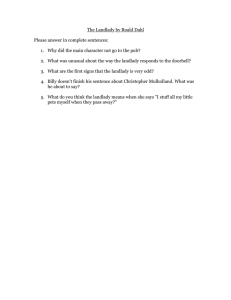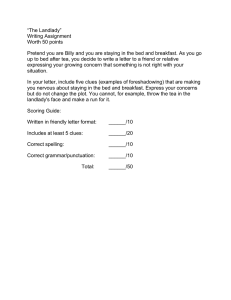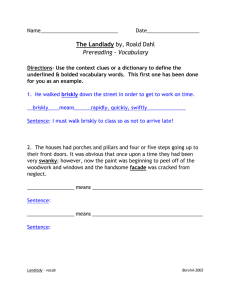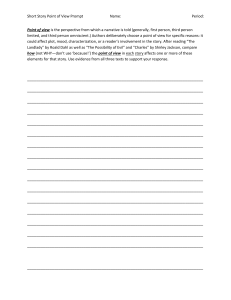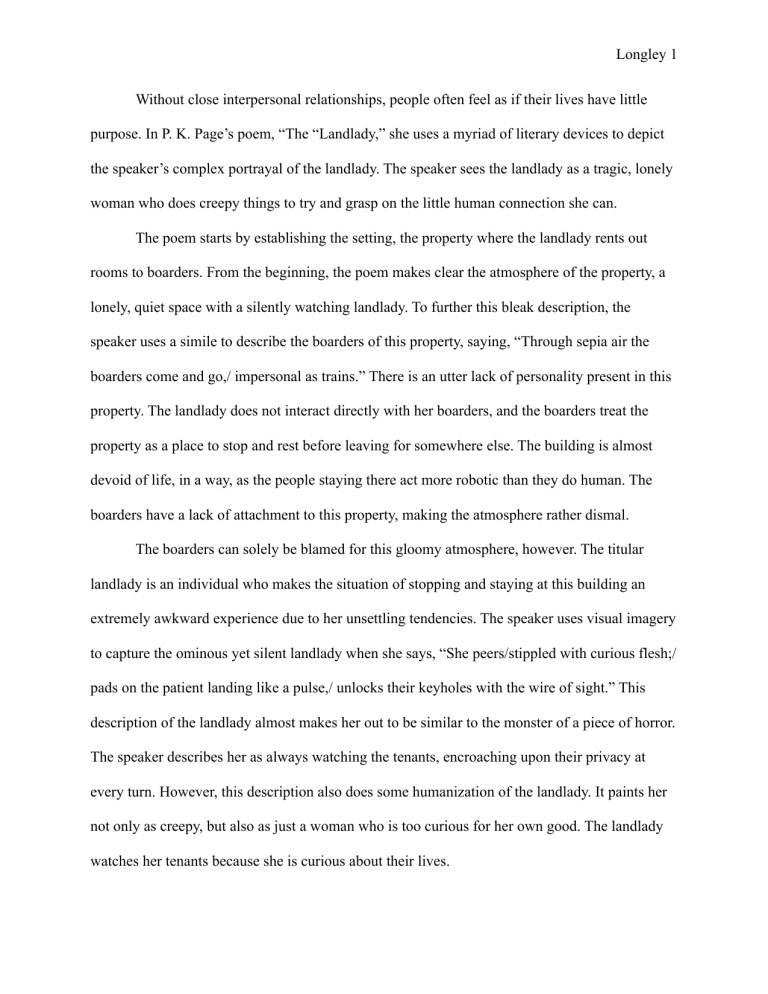
Longley 1 Without close interpersonal relationships, people often feel as if their lives have little purpose. In P. K. Page’s poem, “The “Landlady,” she uses a myriad of literary devices to depict the speaker’s complex portrayal of the landlady. The speaker sees the landlady as a tragic, lonely woman who does creepy things to try and grasp on the little human connection she can. The poem starts by establishing the setting, the property where the landlady rents out rooms to boarders. From the beginning, the poem makes clear the atmosphere of the property, a lonely, quiet space with a silently watching landlady. To further this bleak description, the speaker uses a simile to describe the boarders of this property, saying, “Through sepia air the boarders come and go,/ impersonal as trains.” There is an utter lack of personality present in this property. The landlady does not interact directly with her boarders, and the boarders treat the property as a place to stop and rest before leaving for somewhere else. The building is almost devoid of life, in a way, as the people staying there act more robotic than they do human. The boarders have a lack of attachment to this property, making the atmosphere rather dismal. The boarders can solely be blamed for this gloomy atmosphere, however. The titular landlady is an individual who makes the situation of stopping and staying at this building an extremely awkward experience due to her unsettling tendencies. The speaker uses visual imagery to capture the ominous yet silent landlady when she says, “She peers/stippled with curious flesh;/ pads on the patient landing like a pulse,/ unlocks their keyholes with the wire of sight.” This description of the landlady almost makes her out to be similar to the monster of a piece of horror. The speaker describes her as always watching the tenants, encroaching upon their privacy at every turn. However, this description also does some humanization of the landlady. It paints her not only as creepy, but also as just a woman who is too curious for her own good. The landlady watches her tenants because she is curious about their lives. Longley 2 Perhaps the landlady’s curiosity would not be so foreboding if she was a more conscientious individual. The landlady has her boarders at the top of her mind, wondering what their lives are like. As the speaker gets inside the landlady’s head, she uses a metaphor to compare the landlady’s social habits to crossing the road by saying, “[the landlady] trembles to know the traffic of their brains,/jaywalks their street in clumsy shoes.” Where normal human interactions are similar to an orderly flow of traffic, the landlady takes on the role of a jaywalker. The same way a jaywalker breaks the laws of traffic, the landlady breaks the laws of social life. Instead of forming typical personal connections, she clumsily attempts to learn all she can about her tenants without actually speaking to them. The landlady does not know how to interact with others in a manner befitting of an ordinary person. The landlady has her own desires. At the end of the poem, the speaker reveals what the landlady stands to gain from her antics by giving her point of view. They say that the landlady, “prays she may catch them unprepared at last/and palm the dreadful riddle of their skulls.” The landlady is a lonely soul who wants to know what makes other people tick. She, either unaware or uncaring towards social conditions, finds out all she can about her boarders by watching their every move. She longs to discover what her tenants think about and who they are. She wishes to find the “dreadful riddle of their skulls.” The landlady is a constant presence in the boarder’s lives, but one often unseen. She thinks much about her tenants, but does not know how to reach out to them. The only way the landlady is able to suppress her loneliness is by invading upon the privacy of her tenants. She should not be doing this, but it is tragic that she feels the need to. On my word of honor, I have neither given nor received help on this work. -Ben Longley
